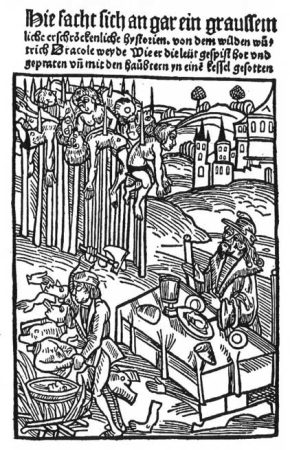In this extract, contemporarised but otherwise unchanged, Theophilus takes us through some comprehensive instructions for making gold:
1. Locate or prepare an underground house, with “all sides of stone” and “two openings so small that scarcely any [sunlight] is visible”.
2. Into this house place “two cocks of 12 to 15 years old and give them sufficient food”. When the cocks have “become fatted”, allow them to mate with hens until the hens lay eggs.
3. Expel the chickens and replace them with large toads, which are to “keep the eggs warm”.
4. “From the hatched eggs there [shall hatch] male chickens, like hen’s chickens, which after seven days [will] grow serpents’ tails.” These must be kept in a room or cellar lined with stone or they will burrow into the earth.
5. After six months, burn these creatures alive until they are “completely consumed” and burnt to ashes.
6. Gather up the ashes and “pulverise them, adding a third part of the blood of a red-haired man”, mixed with some “sharp vinegar”.
7. Spread this mixture over “the thinnest plates of purest red copper… and place them in the fire”. When they become red hot, take from the fire and cool, then repeat this step until “the preparation penetrates through the copper and takes on the weight and colour of gold.”
Source: Theophilus Presbyter, De Diversis Artibus, c.1120. Content on this page is © Alpha History 2019-23. Content may not be republished without our express permission. For more information please refer to our Terms of Use or contact Alpha History.

